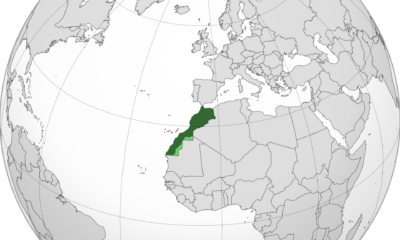Constitution
Civic virtue – an unusual lesson
Vivek Ramaswamy finds his fellow Americans lacking in civic virtue – and proposes a radical change to improve that virtue in the electorate.
Last week a single-digit candidate made this provocative statement: that Americans have forgotten civic virtue. And so – perhaps for the first time in history – a candidate for the highest office in the land proposed a radical step to ensure that civic virtue will return to politics. To do that, Vivek G. Ramaswamy proposes amending the Constitution to raise the voting age to 25. But that is actually an incentive for young people to demonstrate civic virtue for the privilege of voting earlier.
Who is Vivek G. Ramaswamy?
Vivek Ganapathy Ramaswamy, 37, might be the youngest person ever to seek the office of President of the United States. He is the son of two well-educated parents from India; presumably they were naturalized citizens before Vivek was born. He holds a bachelor’s degree from Harvard College and a law degree from Yale Law School. So he might be young, but he is well-qualified for the office.
More to the point, he has two major publishing credits. They are:
- Woke, Inc.: Inside Corporate America’s Social Justice Scam, Center Street Publishers, August 2021, and
- Nation of Victims: Identity Politics, the Death of Merit, and the Path Back to Excellence, Center Street Publishers, September, 2022.
A month before publishing his first book, he published an op-ed in Newsweek protesting the “church of wokeness” in workplaces.
When he entered the 2024 Republican Presidential nomination race, he said Donald Trump hadn’t gone far enough with his America First agenda. He has “tweeted” prolifically on Twitter, so his positions are easy to tease out. Here is a sample:
The civic virtue amendment
On Wednesday afternoon, Ramaswamy left this tweet discussing the military recruitment deficit – and the lack of national pride on the part of “Generation Z”:
That evening he gave an interview to Fox News discussing that proposed amendment. We have not seen a detailed draft, but he gave the gist to Houston Keene at Fox. His proposal entails:
- Repeal of Amendment XXVI, the one setting the universal voting age at 18,
- Establishing a general minimum voting age of 25, and
- Providing two pathways for persons 18 through 24 to get their voting rights earlier.
These pathways are:
- A six-month term of service in either the military or in some emergency first-response capacity, including law enforcement, or:
- Passage of the same civics test that naturalization applicants must pass to become citizens.
The idea is not to require everyone to serve, but to require a civic duty function in order to vote. Or at least, to require that before the age of 25. “At age 25, that falls away,” he said.
Ramaswamy repudiated any comparison of his proposal to the Jim Crow segregation laws in the South and elsewhere after Reconstruction. “There is no room for funny business” with his proposal, he said.
The original Amendment XXVI set a precedent for “tying civic duties to the privilege of citizenship.” Back then, the draft existed – so Amendment XXVI eliminated any ground to charge discrimination. (The problem: the draft went away, but the voting age stayed at 18.)
Vivek proposes his amendment publicly
Ramaswamy outlined his proposal at a public rally in Iowa the next day. At 8:05 p.m. Thursday, he dropped his proposal on Twitter.
Turning Point USA’s Charlie Kirk picked up on that two hours later:
Later that night, Ramaswamy shared this video – of the youngest attendee at his Iowa rally expressing a willingness to abide by the proposed new rule.
The next morning he expanded on that incident:
In these next three tweets he expanded further on the importance of civic virtue in voting.
Newsweek gathered a sample of reactions, both pro:
And con:
The last two tweets are from a thread by one calling himself “the youngest Biden delegate.” In direct reply to him, another user shared this:
What is civic virtue?
That last user understands an admittedly crude distinction between those having civic virtue and those lacking it. Briefly: when you are young, if you are not on the left, you have no heart. But as you get older, if you do not at the same time move right, you have no brain.
Which in turns leads to this truism: no one is born with civic virtue, any more than the other virtues. Civic virtue, like all virtue, requires education and training. Sadly, American society does not offer such training any longer. “Civics” is a neglected subject in middle and high school today. Nor does any middle- or high-school student read any of the great literature that teaches civic virtue. CNAV would like to suggest a reading list:
- De Tocqueville, Alexis. Democracy in America.
- De Vattel, Emmerich. The Law of Nations.
- Skousen, W. Cleon. The Five Thousand Year Leap: A Miracle That Changed the World.
De Tocqueville is especially instructive:
The American Republic will endure until the day Congress discovers that it can bribe the public with the public’s money.
Which is what we see happening today. Furthermore the reaction to Ramaswamy’s idea about civic virtue splits along Party and left-right lines. (Remarkably, reaction among the very young does not. Ramaswamy seemed to think the younger anyone was, the better he liked his proposals – at least before 18.)
An alternative proposal
Recall that the late Robert A. Heinlein made a comprehensive civic virtue proposal similar to Ramasamy’s – but not identical. In Starship Troopers (1959),Heinlein did not propose any age at which one would automatically win the vote by default. That default voting age of 25 is just that: a default. It probably has its basis in the old draft system, under which 25 was the maximum draft age.
Nor did Heinlein call for a civics test – though he did propose that “History and Moral Philosophy” be part of the high-school curriculum, and require that only a qualified citizen teach it. (The idea is to teach history through an explicitly moral lens.) To qualify for voting citizenship, Heinlein proposed a minimum two-year term in military or other life-on-the-line service except law enforcement. (Law enforcement is part of “running the state.” But Heinlein would gladly accept any emergency first-response service lacking the power of arrest, as qualifying service. Unlike ancient Athens, Heinlein believed that enforcers of the law should be qualified citizens, not municipal slaves.)
Of course, not everyone can qualify for military or emergency first-response service. So any proposal to reserve the vote to those who “prove themselves,” must invent other ways to earn the vote. Ramaswamy proposes a test – the same test applicants for naturalization take. Heinlein proposed a dizzying variety of other services, having some risk of life in common. But the basic principle – the ultimate risk for the ultimate privilege – remains the same.
What the objections mean
The objections to Ramaswamy’s civic virtue proposal have their basis in entitlement, not the earning of a privilege. Entitlement is, of course, the basis for most of the left’s program. But the problem with entitlement is that someone else must furnish the things to which the left teaches their clients to feel entitled. Such are the politics of envy, not the politics of civic virtue. Again, recall De Tocqueville’s warning along this very line.
True enough, the Ramaswamy plan is not likely to pass. After all, Ramaswamy does not command more than five percent of Republican voters, if that. But his proposal gives rise to constructive thought – on the part of any who can still think.
Terry A. Hurlbut has been a student of politics, philosophy, and science for more than 35 years. He is a graduate of Yale College and has served as a physician-level laboratory administrator in a 250-bed community hospital. He also is a serious student of the Bible, is conversant in its two primary original languages, and has followed the creation-science movement closely since 1993.
-

 Guest Columns5 days ago
Guest Columns5 days agoData Centers Are a Repeat of History in PA’s Coal Region
-

 Executive4 days ago
Executive4 days agoWaste of the Day: Secret Settlements get Taxpayer Money
-

 Executive5 days ago
Executive5 days agoWaste of the Day: Throwback Thursday – Americans Lead Moroccan Pottery Classes
-

 Civilization5 days ago
Civilization5 days agoThe Northwest Passage Will Be Decided by Capability, Not Law
-

 Accountability22 hours ago
Accountability22 hours agoWaste of the Day: Principal Bought Lobster with School Funds
-

 Constitution13 hours ago
Constitution13 hours agoTrump, Canada, and the Constitutional Problem Beneath the Bridge
-

 Civilization3 days ago
Civilization3 days agoThe devil is in the details
-

 Executive3 days ago
Executive3 days agoTwo New Books Bash Covid Failures








